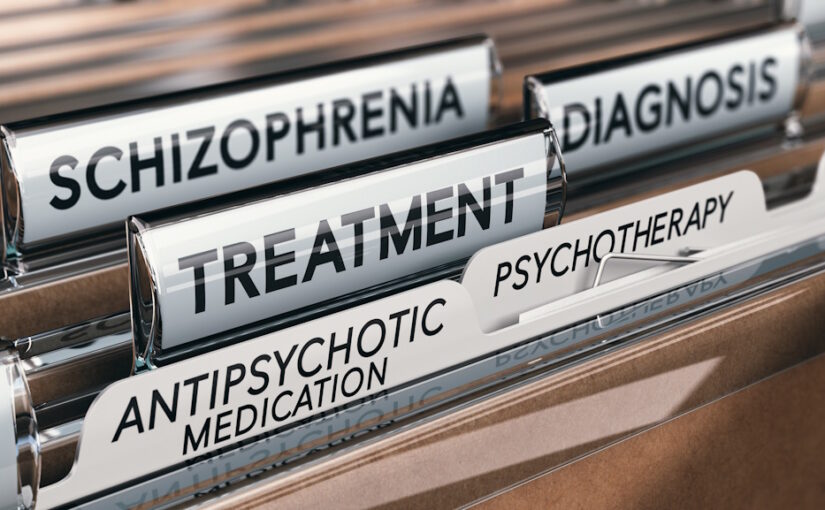Can I Receive Disability Benefits for Schizophrenia?

Schizophrenia is a severe mental disorder characterized by distortions in thinking, perception, emotions, sense of self, and behavior. Common experiences include hallucinations, such as hearing voices, and delusions, which are firmly held and unfounded beliefs. Not only is schizophrenia an illness in itself, but it is also considered a disability due to the debilitating effects it can have on an individual’s ability to function normally on a day-to-day basis.
Understanding Schizophrenia
The Biology of Schizophrenia
While the exact cause of schizophrenia is unknown, it is generally considered to be the result of a complex interplay between genetic, environmental and psychological elements. Biological theories suggest abnormalities in brain chemistry and structure may contribute to the development of the disorder. Schizophrenia is often marked by pronounced, often disabling, symptoms like hallucinations, delusions, thought disorders, movement disorders, and negative symptoms such as reduced feelings of pleasure, reduced speaking, and diminished ability to begin and sustain planned activities.
The Psychological Perspective
From a psychological perspective, schizophrenia often develops in late adolescence or early adulthood, but it can occur at any age. The progression of the disease is often gradual, with early signs being an unusual preoccupation with unusual ideas; an idiosyncratic way of relating to oneself and others; disruptions in thought processes; and perceptual distortions. Paranoia and auditory hallucinations are also common indications of the illness.
How Schizophrenia Impacts Daily Life
Schizophrenia greatly disrupts normal daily functioning, often impeding the ability to work, attend school, or interact socially. This can lead to difficulties in maintaining relationships, holding on to a job, or simply managing the tasks of daily life. The sense of fear, confusion, and distress experienced can be overwhelming and debilitating.
Schizophrenia as a Disability
Legally, a disability is defined as a physical or mental impairment that substantially limits one or more major life activities. Given the profound effects that schizophrenia has on critical areas such as self-care, learning, working, or interacting with others, it comfortably fits into this definition.
Living with schizophrenia as a disability presents several challenges. Social stigma often associated with the disorder can lead to discrimination, exclusion, and misunderstanding in various social settings. Employment challenges are also pervasive. Many individuals with schizophrenia have difficulty finding and maintaining steady employment due to episodic symptoms and cognitive difficulties. Access to necessary services such as medical care, housing, and rehabilitation is often fraught with obstacles for people living with schizophrenia.
Disability Benefits for Schizophrenia
There are numerous disability benefits available to help individuals with schizophrenia. Key among these are the Social Security Disability Insurance (SSDI) and Supplemental Security Income (SSI) programs.
SSDI provides benefits to disabled individuals who have worked long enough and have a medical condition that has prevented them from working or is expected to prevent them from working for at least 12 months or end in death. SSI, on the other hand, makes payments to disabled adults and children who have limited income and resources.
To be eligible for schizophrenia disability benefits, one needs to demonstrate that they have a medical condition that meets the definition of disability under the Social Security Act. The person must provide medical evidence showing they have schizophrenia and its associated limitations. Individuals seeking disability benefits for schizophrenia must provide sufficient medical evidence to demonstrate the presence of the disorder and its impact on daily functioning. This evidence should clearly show the limitations caused by schizophrenia, aligning with the definition of disability under the Social Security Act. Meeting these criteria is crucial for eligibility for programs like SSDI and SSI, which offer financial assistance to those unable to work due to their condition.
Managing Schizophrenia Disability
Effective management of schizophrenia often involves a combination of medication and therapy. Antipsychotic medications can help control hallucinations, delusions, and other symptoms. Meanwhile, different types of therapy, including cognitive-behavioral therapy, can help individuals manage their condition and improve quality of life.
A stable routine is essential. It promotes consistency, predictability, and stress management. Regular sleep and meal schedules, coordinated medication intake, and predictable daily activities can contribute to overall stability.
Self-management tactics such as self-monitoring for signs of relapse, responding effectively to symptoms, managing stress, and maintaining a healthy lifestyle, play a significant role in managing schizophrenia.
Another vital aspect in managing schizophrenia is community and family support. It can bridge the gap between clinical services and daily life.
Supporting Individuals with Schizophrenia
Supporting individuals with schizophrenia entails understanding the disease, empathizing with the person affected, and providing the care they need. Family and friends offer a significant supportive presence, providing practical help and emotional support.
Advocacy for mental health and disability rights is another crucial form of support, compelling society to create environments that are more inclusive and supportive of people with schizophrenia. Organizations such as the National Alliance on Mental Illness and Mental Health America offer resources and services to individuals with mental illnesses and their families.
Conclusion
Recognizing and supporting schizophrenia as a disability is essential. It is not merely about understanding that schizophrenia is a disabling condition, but it is also about creating an empathetic, inclusive, supportive society, which acknowledges and upholds the rights and needs of people with schizophrenia.
The hope lies in improved understanding and more comprehensive support programs for those affected by schizophrenia, illuminating the path towards abolishing stigma, promoting inclusion, and affirming the worth and dignity of every individual living with schizophrenia.


